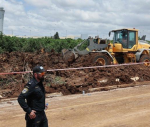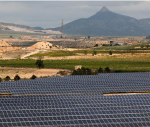You are here
Maliki’s bitter harvest
Jun 17,2014 - Last updated at Jun 17,2014
In retrospect, the Sunni uprising that is gripping northern and eastern Iraq today was bound to take place eventually.
Eight years under Prime Minister Nouri Al Maliki’s self-serving policies of political exclusion and marginalisation pushed Iraq’s Sunnis over the edge.
In the midst of a wave of sectarian violence in Iraq and in neighbouring Syria, extremist groups found a foothold.
In less than two years, a previously unknown militant organisation, the Islamic State of Iraq and the Levant (ISIL), replaced Al Qaeda in the rebellious Al Anbar province — as well as in northeastern Syria — and found backing from disenfranchised Sunni tribes.
But last week’s stunning events, when ISIL and Sunni rebels stormed Iraq’s second largest city, Mosul, in the northern governorate of Nineveh and took over without a single shot being fired, changed the status quo.
The mysterious disintegration of the Iraqi army in the city, who left arms in the streets and abandoned a key military air base, has shocked Iraq’s allies and foes.
Maliki, who is seeking a third term in office, spoke of a conspiracy and called on parliament to declare a state of emergency. But his plea was rejected.
Soon the Sunni rebels took over Tikrit and most of the Salahuddin province and were moving into Diala, pushing their way slowly towards Baghdad.
As grave as the situation is, US President Barack Obama said he would not send troops to Iraq and that he would provide support only if the quarrelling forces in the country agree to political solution.
President Hassan Rouhani of Iran said he would help Iraq and offered to work with Washington on finding a proper solution.
Saudi Arabia dismissed Maliki’s sectarian policies and called for the formation of a national unity government.
Both the US and Iran should refrain from meddling in Iraq’s internal affairs. It was the US invasion of Iraq in 2003 and its rash and incoherent policies throughout its occupation that brought the country to this sorry state.
In Washington, Republicans called on the administration to intervene, but they also admitted that Maliki should go.
In fact, even after his coalition made substantial gains in the recent parliamentary elections, major Shiite alliances rejected Maliki’s attempt to win a third term in office.
Certainly Sunni politicians were against it.
Most observers believe that the core of Iraq’s plight is political and that a security solution will not end the state of chaos and violence that has taken over the country, especially in the aftermath of America’s withdrawal in 2011.
They blame Maliki’s subordination to Iran and the political structure that encouraged sectarian tension through quota representation for the situation.
Furthermore, Maliki proved to be a dictator, alienating and persecuting his political foes while holding most power in his hands. He failed to build a national army and waged a ruthless military campaign against disgruntled Sunnis in Al Anbar province.
He has been accused of wide-scale corruption and violation of human rights. He failed to stem the tide of suicide attacks in Baghdad that cost the lives of thousands.
Maliki has not backed down. He says he is fighting terrorists, even though it now appears that there is a genuine Sunni uprising that has been penetrated by ISIL.
Who and what ISIL is exactly no one really knows. Experts accuse it of being an Iranian invention that is meant to scare the Shiites and bully the Sunnis.
In Syria, the opposition says ISIL is colluding with the regime of President Bashar Assad.
In any case, the focus on ISIL in the past few months has bolstered Assad’s claim that he is fighting jihadists on behalf of the West. The Americans now say ISIL poses a threat to their national security.
But it is inconceivable for a militia of few thousands to take over at least three provinces in Iraq, including major cities, with no resistance.
Maliki supporters say the onslaught is being led by former Baathist officers allied with Sunni tribes.
Amid the fear of a Sunni march on Najaf and Karbala, which is unlikely, the spiritual Shiite leader in Iraq, Ayatollah Ali Al Sistani, has issued an edict calling on Iraqis to volunteer and take up arms.
Maliki welcomed the call and opened volunteer centres across the country.
Arming thousands of young, mostly Shiite, youth is a dangerous development. It is a precursor to a full-fledged sectarian war that could lead to Iraq’s partition into at least three entities.
There is every reason for countries in the region to be concerned. Chaos in Iraq will spill over across the porous borders. No country will be spared the repercussions of what will happen there.
It is important that Maliki be stopped and that a political solution be sought.
A moderate and secular leadership that addresses the core issues of both Sunnis and Shiites in Iraq is now needed.
The ISIL threat will subside if Sunni complaints are addressed and contained.
Iran’s influence on that country will have to be checked. Iraqis can still save their country if regional efforts allow them to do so.
The alternative will be a catastrophe for the entire region.
The writer is a journalist and political commentator based in Amman.













